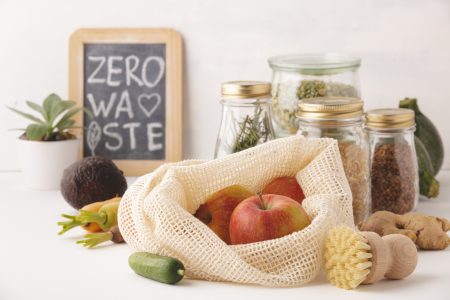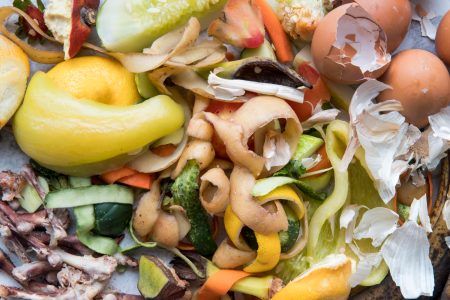
Embracing a zero waste lifestyle is a transformative journey that benefits both the environment and your well-being. By reducing waste, you contribute to a healthier planet and cultivate more mindful and sustainable habits. Here’s a comprehensive guide to help you get started on your zero waste journey.
Understanding the Zero Waste Lifestyle
A zero waste lifestyle aims to minimize the amount of waste you produce by making conscious choices in your daily activities. This lifestyle encourages reducing, reusing, recycling, and composting to divert as much waste as possible from landfills. The goal is to send nothing to the landfill, incinerator, or the ocean.
Steps to Start Your Zero Waste Journey
1. Assess Your Waste
The first step in adopting a zero waste lifestyle is understanding how much and what type of waste you generate. Keep a waste journal for a week, noting everything you throw away. This helps identify key areas where you can make changes.
2. Reduce Consumption
Before you buy anything, ask yourself if you really need it. Reducing consumption is crucial in a zero waste lifestyle. Choose quality over quantity and invest in items that are durable and reusable.
3. Switch to Reusables
Replace single-use items with reusable alternatives. Here are some simple swaps to get you started:
- Reusable bags: Carry cloth bags for shopping instead of plastic ones.
- Water bottles: Use a stainless steel or glass water bottle instead of buying plastic bottles.
- Coffee cups: Bring your own travel mug to the coffee shop.
- Straws and utensils: Carry reusable straws and cutlery to avoid single-use plastics.
- Food containers: Use glass or stainless steel containers for storing food and leftovers.
4. Shop Smart
Opt for products with minimal packaging or buy in bulk to reduce waste. Bring your own containers to bulk stores and farmers’ markets. Choose items packaged in recyclable or biodegradable materials.
5. DIY and Upcycle
Make your own household products like cleaning solutions, skincare, and deodorant. Not only is this often healthier and cheaper, but it also cuts down on packaging waste. Upcycling old items into something new and useful can also reduce waste and save money.
6. Compost Organic Waste
Set up a compost system for food scraps and yard waste. Composting diverts organic waste from landfills, reduces methane emissions, and creates nutrient-rich soil for gardening.
7. Recycle Properly
Understand your local recycling guidelines and ensure you recycle correctly. Clean and sort items as required to avoid contamination, which can make entire batches of recyclables unusable.
8. Educate and Advocate
Share your zero waste journey with friends and family. Advocate for policies and practices that promote sustainability in your community. Join zero waste groups online or in person for support and ideas.
Benefits of a Zero Waste Lifestyle
Environmental Impact
Reducing waste lessens pollution, conserves natural resources, and decreases the demand for landfill space. By choosing products with a smaller environmental footprint, you help protect ecosystems and wildlife.
Health Benefits
A zero waste lifestyle often leads to healthier choices. Homemade and unpackaged foods tend to be fresher and free from preservatives. Using natural cleaning products reduces exposure to harmful chemicals.
Financial Savings
Although some zero waste alternatives may have a higher upfront cost, they save money in the long run. Reusable items mean fewer purchases over time, and making your own products can be more cost-effective than buying packaged ones.
Mindful Living
Living zero waste encourages mindfulness and intentionality. By considering the impact of your actions and purchases, you develop a deeper connection to the world around you.
Overcoming Challenges
Starting a zero waste lifestyle can be daunting, but it’s important to take it one step at a time. Here are some tips to help you overcome common challenges:
Start Small
Focus on one area of your life at a time. Begin with an easy swap, like using a reusable water bottle, and gradually incorporate more changes.
Be Patient
Transitioning to zero waste won’t happen overnight. Be patient with yourself and celebrate small victories along the way.
Seek Support
Connect with others who are also pursuing a zero waste lifestyle. Sharing experiences and tips can provide motivation and inspiration.
Stay Flexible
Life is unpredictable, and sometimes producing waste is unavoidable. Don’t be too hard on yourself. Do your best and remember that every little bit helps.
Conclusion
Starting a zero waste lifestyle is a powerful way to contribute to a more sustainable and healthier planet. By assessing your waste, making mindful choices, and gradually incorporating changes, you can significantly reduce your environmental footprint. Remember, the journey to zero waste is a marathon, not a sprint. Celebrate your progress, stay committed, and enjoy the positive impact you’re making on the world.



